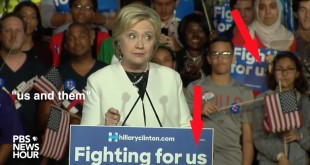In last week’s Republican presidential debate on CNBC, the candidates and their supporters finally pushed back against the historical tide threatening to make such debates meaningless.
The debate on the financial network was entitled “Your Money, Your Vote” and promoted as being focused on economic issues. What ensued was a shallow attempt by the moderators to create conflict and controversy and maximize ratings. The questions to the candidates editorialized and insulted, and sometimes contained inaccuracies. The candidates were frequently interrupted in their responses and the debating ended up being between the moderators and the candidates. It got so bad that the candidates began to protest forcefully and the audience members, typically there just to scream for their favorite, began to boo the moderators. Merely annoying was the crawl of tweeted messages on the bottom of the screen, in case the drama on screen was not stimulating enough. Those who have watched the shout-athon that is CNBC’s daytime programming should not have been too surprised at the tone of the moderators. (And really, how else does one make financial news and analysis stimulating all day every day?)
Presidential debates have moved toward increased conflict and drama since John F. Kennedy and Richard Nixon participated in the first televised debate in 1960. If you jump to any point in the video (below) of that debate and watch for a few minutes, you will see candidates calmly addressing important issues in a thoughtful way with a respectful moderator presiding.
If you performed the same experiment on any of this year’s primary debates (3 Republican, 1 Democrat) you would see an atmosphere that resembles a reality TV show much more than the Nixon-Kennedy debate. CNBC certainly pushed it farther than both CNN and Fox (sponsors of the previous debates), but not by much. The moderators of all of the Republican debates recognized that the presence of Donald Trump was pure ratings gold and worked to maximize his time on-screen and to sow conflict with the other candidates.
The single Democrat debate was more issues-focused, but the same attempts to create conflict were made. The viewers were likewise subjected to silly questions, such as: “Do black lives matter or do all lives matter?” and “Which enemy are you most proud of?” The candidates squirmed at the first, but were happy to use the second to tick off their lists of demons.
These debates, even more than a year before the actual election are big ratings (and thus money) bonanzas for the networks that carry them. The first Republican debate this year, carried on Fox, was the highest rated non-sports program ever aired on a cable news network. So, making the debates longer and more dramatic translates into dollars and exposure for the networks. CNBC had hoped to use the debate to showcase their on-air talent (thus the rotating group of questioners), and it showed. The over-the-top behavior of the moderators has been widely criticized and the network likely will not get the ratings bump for its regular programming that it hopes for.
The financial windfall for the networks from these debates is generally not discussed by journalists or politicians – it lays bare the symbiosis between the two groups. One can imagine CNN’s and Fox News’ high-powered talent at a cocktail party (perhaps not the same cocktail party) ridiculing the “amateurs” at CNBC for mismanaging the debate and making their real objective so obvious. Donald Trump, who does not play by the unwritten rules of politics (one of the reasons for his popularity), openly opined before and during the debate that CNBC wanted to extend the length of the debate in order to sell more commercial time at up to $250,000 per 30-second spot.
In spite of the Republican pushback expect the networks to continue to turn up the debate drama in new and creative ways. They won’t always have a larger-than-life celebrity or an avowed socialist to generate interest and ratings. One can only wonder to what extent these large viewing audiences are tuning in strictly for the entertainment value and not to be better informed. These debates are, perhaps, the highest form of reality TV, with the most real consequences. Which is some consolation, I suppose. At least it hasn’t been transformed into a game show format – yet.
 Thought Widget get learnt
Thought Widget get learnt



